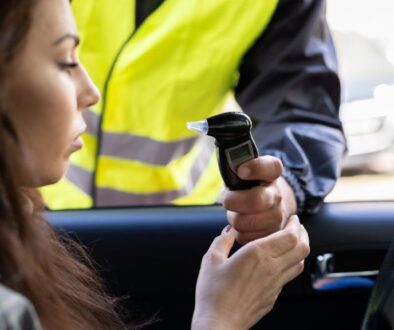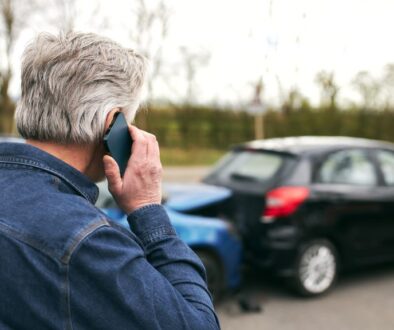How to Handle Your Vehicle Repair Claim in Florida
If you’ve been in a car accident in Florida, handling your vehicle repair claim can feel overwhelming—but it doesn’t have to be.
To successfully manage a repair claim, you’ll need to assess the scene, document everything, notify your insurance provider, get a repair estimate, choose a shop, and possibly secure alternate transportation.
This step-by-step guide walks you through the process and explains your rights under Florida law, so you can get your vehicle—and your life—back on track.
Step 1: Prioritize Safety and Assess the Situation
After a collision, your first concern should be safety. Move yourself and others out of harm’s way if possible. Check for injuries and call 911 if anyone is hurt. Under Florida law, you must report the accident to police if:
- There is an injury or fatality
- There is $500 or more in property damage
Stay at the scene until authorities arrive. If your vehicle is drivable, pull over to a safe location.
Step 2: Document the Accident Thoroughly
The more documentation you gather at the scene, the smoother your claim process will be. Be sure to:
- Take photos of all vehicles involved from multiple angles
- Snap pictures of the surrounding area, skid marks, road signs, and weather conditions
- Exchange insurance and contact information with all parties
- Gather witness contact info
- Obtain a copy of the police report or know how to request one later
This documentation will be vital when speaking with insurers and adjusters.
Step 3: Notify Your Insurance Company Promptly
Florida is a no-fault insurance state, meaning your insurance provider will likely handle your claim first, regardless of who caused the accident.
Contact your insurance company as soon as possible and provide:
- The details of the accident
- Any documentation you collected
- A copy of the police report (when available)
Your insurer will assign a claims adjuster to assess the damage and help guide you through the repair and reimbursement process. Be sure to ask about your deductible, coverage limits, and whether you have rental reimbursement coverage.
Step 4: Know Your Coverage (and Florida Law)
Here’s what Florida drivers are legally required to carry:
- $10,000 in Personal Injury Protection (PIP)
- $10,000 in Property Damage Liability (PDL)
If you have collision coverage, that will help pay for damage to your own vehicle regardless of fault.
Keep in mind: If the other driver was at fault and insured, their property damage liability coverage may also be used to cover your repair costs.
Step 5: Choose a Trusted Repair Shop
Florida law allows you to choose your own auto repair shop—you are not required to use your insurance company’s recommended provider.
When selecting a repair facility:
- Look for certified, licensed mechanics with strong reviews
- Ask for a written estimate
- Confirm whether they use OEM or aftermarket parts
Be wary of shops that push for unnecessary repairs or seem vague about pricing.
Step 6: Get a Repair Estimate
Once your vehicle is inspected, the repair shop will provide a written estimate. Share this with your claims adjuster, who will compare it to their own damage assessment.
If approved, repairs can begin. If there’s a dispute about repair costs, your adjuster may request additional estimates—or you may need to negotiate or consult a legal professional.
Step 7: Understand Total Loss and Diminished Value Claims
If the cost to repair your vehicle is close to or exceeds its actual cash value (ACV), the insurance company may declare it a total loss and offer you a payout instead of repairs.
You also have the right to file a diminished value claim in Florida. This compensates you for your vehicle’s reduced resale value—even after quality repairs. Not all insurers automatically offer this, so you may need to ask or consult an attorney to pursue it.
Step 8: Arrange for a Rental Vehicle
If your policy includes rental car coverage, your insurer will help you arrange transportation while your car is in the shop. If the other driver was at fault, their insurance may be required to provide a rental.
Check your policy’s daily and overall rental limits. Some insurers only cover specific types of rentals or rental agencies.
Step 9: Consult an Attorney if Needed
Sometimes claims don’t go smoothly—especially if:
- Fault is being disputed
- The insurance company is undervaluing your claim
- There are delays or denied coverage
In these situations, consulting a qualified attorney can make all the difference. An experienced lawyer can help protect your rights and ensure you receive the full compensation you deserve.
Final Thoughts: Know Your Rights and Act Fast
The claims process doesn’t have to be a hassle if you stay organized, communicate clearly, and understand your coverage.
But insurance companies are still businesses—they may not always act in your best interest. That’s why it’s smart to know your rights and, when necessary, work with a professional who has your back.
Need Help With a Vehicle Repair Claim in Florida?
If you’re facing delays, lowball offers, or confusing paperwork, Matthew R. Boren is here to help. With years of experience navigating Florida’s insurance and personal injury laws, we’ll fight to make sure your property damage claim is handled fairly and quickly. Contact us today for a free consultation—and let’s get your vehicle, and your peace of mind, fully restored.


